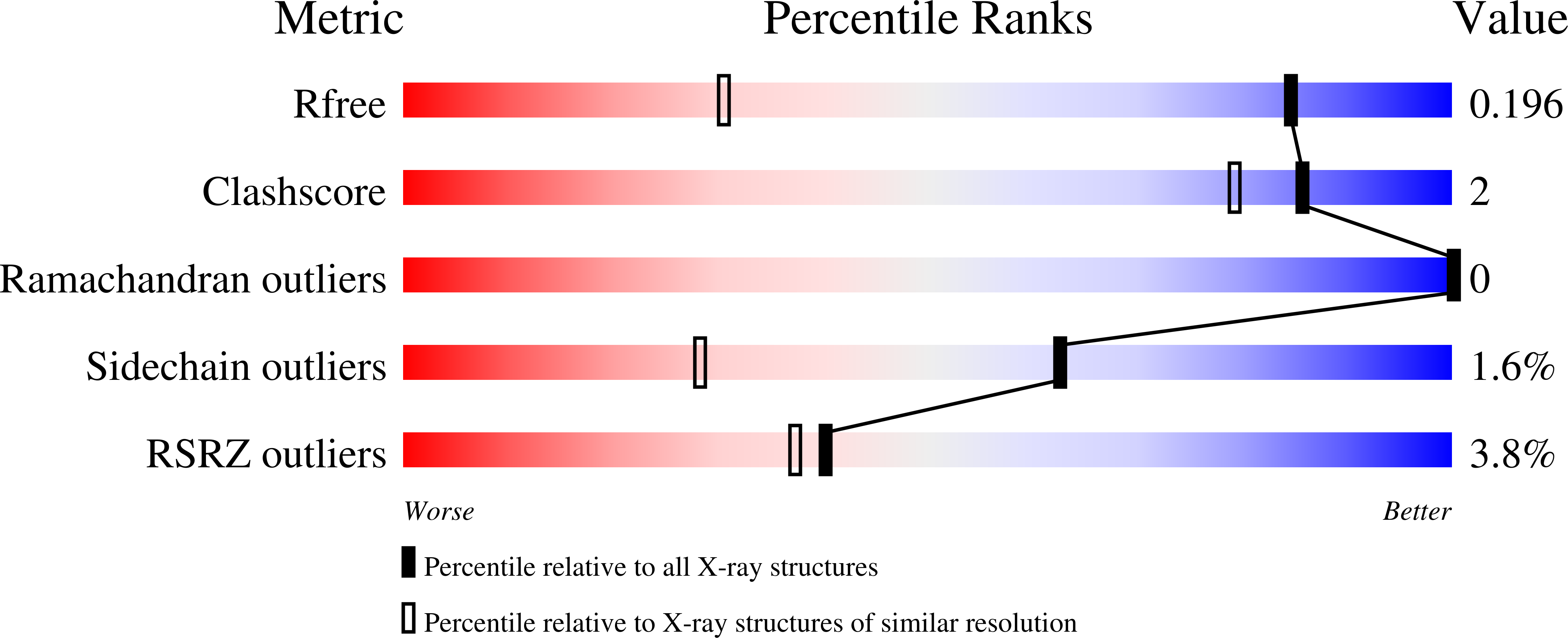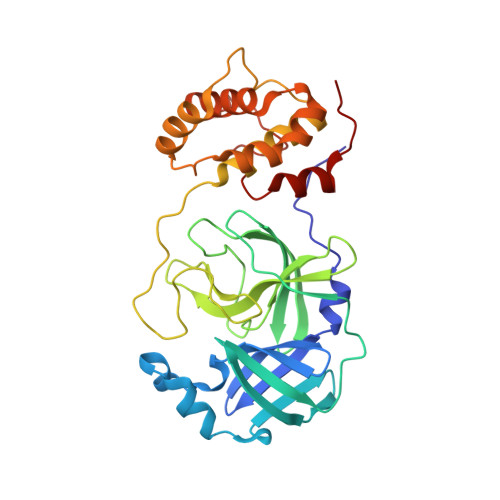Identification of SARS-CoV-2 Mpro inhibitors through deep reinforcement learning for de novo drug design and computational chemistry approaches.
Hazemann, J., Kimmerlin, T., Lange, R., Sweeney, A.M., Bourquin, G., Ritz, D., Czodrowski, P.(2024) RSC Med Chem 15: 2146-2159
- PubMed: 38911172
- DOI: https://doi.org/10.1039/d4md00106k
- Primary Citation of Related Structures:
8R11, 8R12, 8R14, 8R16 - PubMed Abstract:
Severe acute respiratory syndrome coronavirus 2 (SARS-CoV-2) has caused a global pandemic of coronavirus disease (COVID-19) since its emergence in December 2019. As of January 2024, there has been over 774 million reported cases and 7 million deaths worldwide. While vaccination efforts have been successful in reducing the severity of the disease and decreasing the transmission rate, the development of effective therapeutics against SARS-CoV-2 remains a critical need. The main protease (Mpro) of SARS-CoV-2 is an essential enzyme required for viral replication and has been identified as a promising target for drug development. In this study, we report the identification of novel Mpro inhibitors, using a combination of deep reinforcement learning for de novo drug design with 3D pharmacophore/shape-based alignment and privileged fragment match count scoring components followed by hit expansions and molecular docking approaches. Our experimentally validated results show that 3 novel series exhibit potent inhibitory activity against SARS-CoV-2 Mpro, with IC 50 values ranging from 1.3 ¦̀M to 2.3 ¦̀M and a high degree of selectivity. These findings represent promising starting points for the development of new antiviral therapies against COVID-19.
Organizational Affiliation:
Physical Chemistry, Chemistry Department, Johannes Gutenberg University Duesbergweg 10-14 55128 Mainz Germany czodpaul@uni-mainz.de.



















